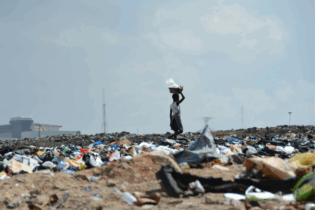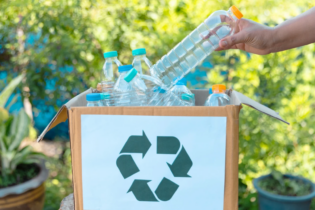The Manufacturing, Engineering and Related Services Education and Training Authority (merSETA), in association with Plastics SA, has launched an innovative pilot study with the aim of developing a better understanding of the shape and size of the Plastics Industry in South Africa. According to Danny Sour, Chairman of the merSETA Plastics Chamber, there are various factors impacting on the industry’s future. “We are hoping to identify the key drivers for change, with particular reference to skills priorities and possible growth scenarios with this industry-wide research project.”As the umbrella body representing the local plastics industry, Plastics SA has been tasked with the responsibility of managing the communication to industry partners and for collecting information and feedback from its members.
“The growth we have experienced in the plastics manufacturing, recycling and related industries during the past five years has left us with a knowledge gap regarding the exact shape and size of our industry,” explained Anton Hanekom, Executive Director of Plastics SA. “We are hoping to gather up to date and vitally important information about our industry with this research project,” Hanekom said. Although the number of people employed in the industry is estimated to be between 45 000 and 63 000 people, exact figures are currently unavailable. Similarly, information about industry demographics such as race, age, gender and disability, or about the skills profile and needs of employees is either non-existent or out-dated.“This project has the potential to benefit all industry partners as it will provide the information needed to improve the government’s grant system which incentivises companies to train in skills which will add the most value to the plastics sector,” Hanekom said. Specifically, it is hoped that the gathered information will help to achieve the following two key objectives: mapping out and describing several jobs in the Plastics Industry in order to avoid any misunderstanding and confusion relating to job descriptions, remuneration and skills levels; introducing an effective forecasting dimension for the industry, such as future anticipated growth and challenge areas, and how the local plastics industry will position itself in terms of Chinese imports, global downsizing, the green economy, waste, entrepreneurship and innovation in the local market. In the need for research on these clearly identified areas independent researchers Christoph Vorwerk and Fiona Farquharson have been appointed to conduct empirical research. They will be collect data by means of an online survey (consisting of a company profile, employee profile and a section on skills and training needs) which will be emailed to the plastics industry and through the hosting of three regional workshops:- Western Cape: Tuesday, 4 September 2012 from 08h30 to 16h00 at the Plastics|SA Offices – Unit D, Olympic Park, 969 Voortrekker Road, Maitland, Cape Town.
- KZN: 11 September 2012 from 08h30 to 16h00 at the Plastics|SA Offices – KZN Experimental College, Old Natal Training Centre, Cnr Richmond and Surprise Roads, Westmead, Pinetown.
- Gauteng: 13 September 2012 from 08h30 to 16h00 at the Plastics|SA Head Office – 18 Gazelle Avenue, Corporate Park South, Midrand.
“We are hoping to achieve a minimum survey response of 20% and are therefore appealing for the cooperation and participation of the industry decision makers, such as managing directors and operational directors of companies in the plastics industry, as we strive to develop a clear understanding of the shape and size of the Plastics Industry in South Africa, the factors impacting on its future and the key drivers for change, with particular reference to skills priorities and possible growth scenarios,” Hanekom concluded.
For further information about the survey, workshops or assistance with the completion of the survey, please contact:- Gauteng: Regional Manager, Manjary Subiah: 011 653 4790, email: Manjary.subiah@plasticsSA.co.za
- Western Cape: Regional Manager, Jo Fitzell: 021 591 5512, email: Jo.fitzell@plasticsSA.co.za
- KwaZulu Natal: Regional Manager, Suzanne Stevens: 031 702 7222, email: Suzanne.stevens@plasticsSA.co.za
- Head Office: Training Executive, Kirtida Bhana: 011 653 4782, email: Kirtida.bhana@plasticsSA.co.za






